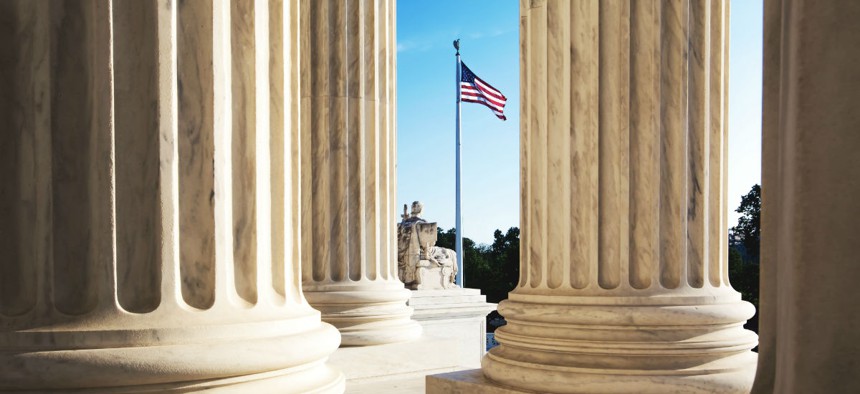
Shutterstock.com
Government's Grand Challenges
The National Academy of Public Administration wants to hear your ideas for improving public service.
In 1970, just a year after Government Executive began covering the business of government, Alvin Toffler published Future Shock, a huge international bestseller about the disruptive effects of rapidly evolving technologies on individuals and society. It was a year of tremendous upheaval: The Vietnam War raged; National Guard troops killed four students during an anti-war protest at Kent State University; the radical Weather Underground declared a state of war against the government; the Concorde took off on it's first supersonic flight; and the peace-and-love movement crashed with the deaths of Janis Joplin and Jimi Hendrix.
Nearly 50 years later, the phenomenon of accelerating change Toffler described still reverberates. We see it in scientific advances in medicine, transportation and weaponry; in the economic dislocation of millions of people whose jobs have been upended by new technologies. We see it in climate change and in global mass migration. We see it in ourselves, in how we cope with “information overload,” a term Toffler and his wife Heidi coined.
More remarkable, perhaps, is how slowly government has evolved in response to these rapid changes. In an effort to address that gap, the National Academy of Public Administration has launched a Grand Challenges initiative to identify and address the most significant issues facing government in the 2020s.
The academy is reaching out to practitioners and academics as well as the general public for input on two key questions, NAPA President and CEO Terry Gerton wrote:
“First, what problems must federal, state and local government address over the next decade for American society to reach its full potential? Second, how must management at all levels of government improve to increase the effectiveness and efficiency of public programs?”
As Government Executive Editor at Large Tim Clark put it in a recent video for NAPA, “these are challenges we all must embrace.” Watch the video below:
Correction: Not all four students killed at Kent State University were participants in the anti-war protest—two were bystanders. The story has been corrected.







